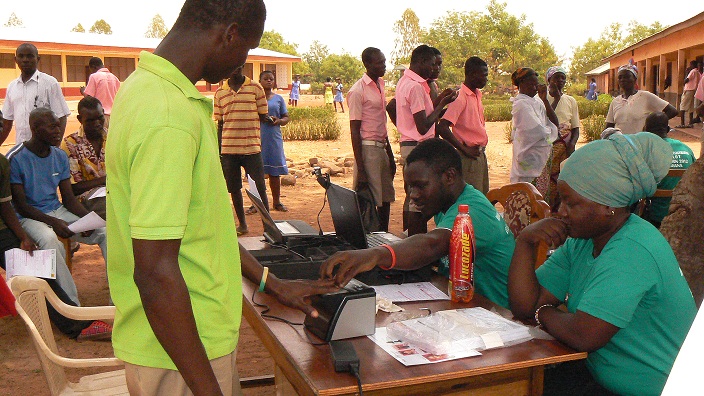The National Electoral Commission (NEC) has asked the Supreme Court to rule on its appeal regarding the High Court ruling against the electronic transmission of election results from Districts to National.
Director of Legal Affairs, Fatorma Fah-Bundeh posed a question to Justice Alusine Sesay who was representing the Judiciary on the Panel during the National Conference on Election Legal Reforms, asking that in 2018 between the first round and the runoff there was a litigation at the High Court in which it gave certain orders to the Commission not to transmit results electronically.
“We appealed against that ruling and it lies in the Supreme Court, since then ruling is yet to be made and this affects the operations of the Commission. We pray silent for the Supreme Court for this ruling to be made so that precedent be followed and NEC will move ahead.”
This ruling is still binding until overturned. However, it was appealed against in the Supreme Court by NEC Legal Team, for contravention of s.45(2) of the 1991 Constitution, that provides for Presidential petitions to be heard in the Supreme Court.
Justice Sesay assured the NEC Director that they are working gradually on outstanding cases before the Supreme Court as the Court was previously challenged with manpower and that some gains have been made as they now have 10 Judges at the Supreme Court in line with the Constitution.
Director Fah-Bundeh also raised the issue of timely decision on Election Petition matters as he says the duration of petitions in court has negative effects on the operations of the Electoral Commission. “If petitions can be decided within short periods, it will improve on the operations of the Electoral Commission and repose confidence in the stakeholders in elections.
He cited section 78 supra which provides for the High Court and Court of Appeal to rule on petitions within 4 months and section 47(2) of the Public Elections Act (PEA) 2012 which provides for Presidential petitions to be lodged within 7 days of publication of the result and to be decided within 30 days. The PEA also provides for appeals from High Court to Court of Appeal to be filed within 21 days of decision.
It is the recommendation of the Commission that elections petitions to be decided within reasonable period.
Justice Sesay emphasized the need for Judges to be trained in electoral matters and advised that Legislators should consider all necessary amendments which are obsolete and no longer necessary for the smooth running of the electoral process, while cautioning that not all laws can be amended as entrenched clauses require referendum.
Speaking on the issue of specialized court, as a Judiciary he said we have taken a position for a review of section 45 (2b.) of the Constitution and section 55 1&2 of the Public Elections Act. Section 45 (2b.) states “…any person has been validly elected as President under section 42 of this Constitution or any other law, shall be referred to and determined by the Supreme Court.”
In addition, section 55 (1) “A person who is a citizen of Sierra Leone and has lawfully voted may in a presidential election challenge the validity of that election by petition to the Supreme Court within seven days after the declaration of the result of a presidential election under subsection (2) of section 52.”
(2) “A declaration by the Supreme Court that the election of the President is not valid shall not prejudice anything done by the President before the declaration.”
The reviews he says is to provide for elections petitions to be adjudicated within a reasonable period that is “compatible” with electoral timeframe also to provide for a deadline to deal with petitions for presidential elections and to review the operations of the electoral offences court that is established with special procedural rules.



 Post a comment
Post a comment










Comment(s)
Disclaimer: Comments expressed here do not reflect the opinions of Sierraloaded or any employee thereof.
Be the first to comment